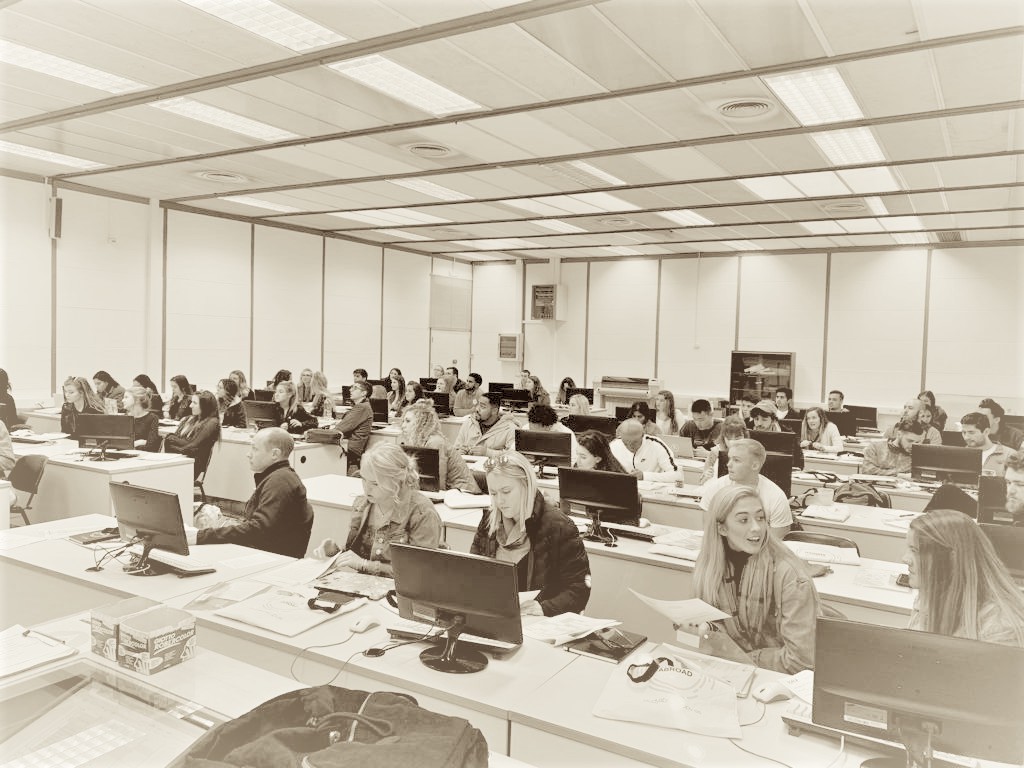
|
|

• Attendance
• Assessments
• Sexual Harassment Policy
• Students With Disabilities
• Academic Honesty Policy
• University Ombudsman
• Statement On Audio And Video Recording
• Syllabus Change Policy
Fundamentals of video game technology
3 Credits | 400 Level | 38 Contact hours
Programming 2D Games - 1st Edition - Charles Kelly
Eloquent JavaScript, 3rd Edition: A Modern Introduction to Programming - Marijn Haverbeke
This course provides an introduction to the essential technologies and programming concepts used in video game development. Students will explore object-oriented programming principles, JavaScript fundamentals, and event-driven programming. The course will delve into the use of JavaScript for creating interactive graphics and sound, with a focus on utilizing HTML5 Canvas. Additionally, students will learn about animation and motion in games, including physics, collision detection, and pathfinding. By the end of the course, students will have a solid foundation in the technical aspects of video game creation and be able to develop simple yet functional games.
Term-specific information provided onsite.
Topic 1. Object Oriented Programming
1. Objects, Inheritance and Polymorphism
2. SOLID Programming
Topic 2. Javascript Fundamentals
1. Introduction to HTML and CSS
2. Introduction to JavaScript
3. Classes in JavaScript (methods and properties)
4. Inheritance and polymorphism in JavaScript
Topic 3. Event-driven programming
1. The Observer Pattern
2. Event management in Javascript
Topic 4. Graphics and sound in Javascript
1. Canvas
2. Text
3. Images
4. Rectangles
5. Paths
6. Lines and curves
7. Colors and textures
8. Transformations
9. Clippings
10. Direct manipulation
11. Composition
12. 2.5D and 3D
13. Sound
Topic 5. Animation and Motion in JavaScript
1. Introduction
2. Timers
3. Threads
4. Synchronization with AnimationFrame
5. Graphical Animation
6. Physics of Motion
7. Collision Detection
8. Maps and Paths
Upon successful completion of this course, students will be able to:
• Lead and manage activities related to projects in the fields of computer science, video games, and multimedia systems, understanding the quality criteria governing these research and professional activities.
• Be able to learn and develop new methods and technologies, as well as providing versatility to adapt to new situations.
• Ability to design, develop, evaluate, and ensure the accessibility, ergonomics, usability, and security of multimedia systems and video games, as well as the information they manage.
• Basic knowledge of the use and programming of computers, operating systems, databases, and software applications in video games and multimedia design.
• Knowledge of the structure, organization, operation, and interconnection of computer systems, the fundamentals of their programming, and their application to solving problems specific to video games and multimedia design.
• Be able to analyze, design, build, and maintain applications in a robust, secure, and efficient manner, choosing the most appropriate paradigms and programming languages in the video game environment.
• Be able to understand the theoretical foundations of programming languages and paradigms used in the implementation of video games, multimedia applications, and virtual reality systems: object-oriented programming, visual programming, scripting, and high-level game engines.
Class Attendance 10%
Assignments 70%
Final Exam 20%
|
